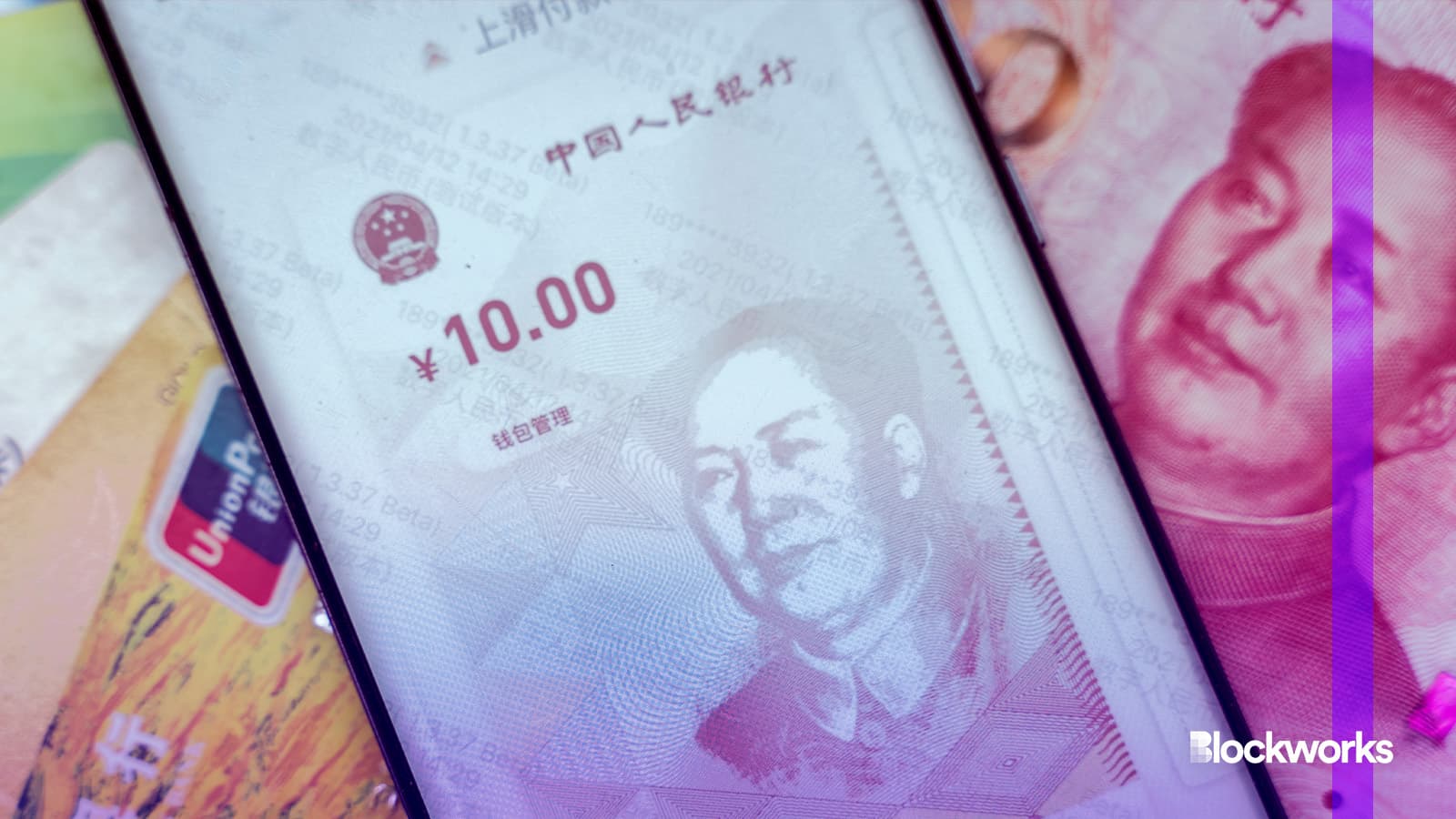Digital yuan used to settle crude oil trade for Chinese oil company: Report
China first rolled out the digital yuan in 2021

helloabc/Shutterstock modified by Blockworks
In a first for both PetroChina and the digital yuan, the Chinese oil and gas company reportedly settled a trade with the country’s central bank digital currency (CBDC).
The news was first reported by China Daily, a paper owned by the Chinese Communist Party.
PetroChina allegedly bought a million barrels of crude at the Shanghai Petroleum and Natural Gas Exchange (SHPGX), with the transaction settled by e-CNY.
The announcement from Friday, made by the SHPGX, did not disclose either the seller or the deal’s value.
“The Shanghai Municipal Party Committee and Municipal Government issued work requirements…The Shanghai Oil and Gas Trading Center responded to the call and actively promoted the embedding of digital renminbi in cross-border renminbi payments when expanding international oil and gas trade transactions,” a translated version of the announcement said.
The digital yuan was first created in 2021, seven years after the People’s Bank of China first started working on the project back in 2014. In April, reports claimed that Changshu — a city in the Jiangsu province of East China — paid civil servants and government employees in the CBDC.
The communist country has been working to incorporate the CBDC and create use cases for it. At the start of this year, the People’s Bank of China first included the CBDC in its official cash reports.
While China is one of the few countries to have a rolled-out CBDC, a Bank of International Settlements survey found that roughly 93% of central banks admitted that they’re interested in exploring “some form” of a CBDC.
Get the news in your inbox. Explore Blockworks newsletters:
- The Breakdown: Decoding crypto and the markets. Daily.
- 0xResearch: Alpha in your inbox. Think like an analyst.






